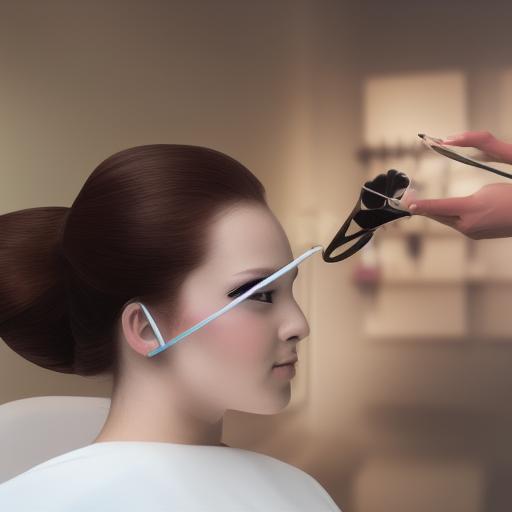
Opening a beauty salon is an exciting venture, fulfilling a passion while building a business. However, navigating the complex web of regulations is crucial for success and avoiding hefty fines or even closure. This comprehensive guide unravels the legal landscape of the beauty salon industry, providing actionable advice and resources to ensure your business operates legally and ethically.
I. Licensing and Permits: The Foundation of Legality
Before even thinking about décor or client acquisition, you must secure the necessary licenses and permits. These vary significantly by location (state, county, and even city), so thorough research is paramount. This section will help you understand the key permits and licenses typically required.
A. State Licensing: Each state has its own cosmetology board or similar regulatory body. These boards dictate licensing requirements for cosmetologists, estheticians, nail technicians, and other professionals working in your salon. This typically includes:
- Education and Training: Meeting specific educational requirements, often including hours of training and passing examinations.
- Application and Fees: Submitting a detailed application along with the necessary fees.
- Background Checks: Undergoing background checks to ensure compliance with safety and ethical standards.
- Continuing Education: Maintaining your license through ongoing professional development courses.
Example: In California, cosmetologists need to complete a specific number of hours of training at a state-approved school, pass a written and practical exam, and pay annual renewal fees. Their license is then specific to the services they are qualified to perform.
B. Local Permits and Licenses: Beyond state licensing, you’ll need permits and licenses at the local level. These often include:
- Business License: A general business license is almost universally required to operate any business.
- Occupancy Permit: Ensuring your salon space meets building codes and safety regulations.
- Health Permits: Permits related to sanitation, hygiene, and waste disposal, often inspected regularly.
- Sign Permits: Permits for exterior signage complying with local zoning laws.
C. Specific Service Permits: Depending on the services offered (e.g., tattooing, micropigmentation, laser treatments), you might need additional specialized permits and licenses beyond general cosmetology licensing. These often have stricter regulations and require specialized training.
D. Finding the Right Information: Your best resource is the website of your state’s cosmetology board and your local city or county government. Look for sections on business licensing, health permits, and zoning regulations. Don’t hesitate to contact these agencies directly; they are there to help guide you through the process.
II. Employee Regulations and Compliance
Managing employees effectively and lawfully is crucial. Understanding labor laws, including minimum wage, overtime pay, and worker’s compensation, is essential.
A. Employment Laws: Familiarize yourself with federal and state laws related to:
- Minimum Wage and Overtime: Pay employees correctly according to federal and state regulations. Keep accurate records of hours worked and wages paid.
- Employee Classification: Correctly classify employees as independent contractors or employees. Misclassification can lead to significant penalties.
- Worker’s Compensation: Provide worker’s compensation insurance to protect your employees in case of workplace injuries.
- Unemployment Insurance: Contribute to unemployment insurance to provide benefits to employees who lose their jobs.
- Equal Employment Opportunity (EEO): Avoid discrimination in hiring, promotion, and termination practices.
B. Employee Contracts and Agreements: Having clear contracts or agreements with your employees, outlining responsibilities, compensation, and other relevant details, protects both you and your employees.
III. Health and Safety Regulations: Protecting Clients and Staff
Maintaining a clean and safe environment is crucial for both legal compliance and building client trust. This section covers key health and safety regulations.
A. Sanitation and Hygiene: Strict sanitation protocols are essential to prevent the spread of infection. This includes:
- Proper sterilization of equipment: Using appropriate disinfectants and sterilization methods for all tools and equipment.
- Hand hygiene: Enforcing strict handwashing protocols for all staff and clients.
- Waste disposal: Proper disposal of sharps, chemicals, and other waste materials according to regulations.
- Cleanliness of the salon: Maintaining a clean and organized salon environment.
B. OSHA Compliance: The Occupational Safety and Health Administration (OSHA) sets standards for workplace safety. Understanding and complying with OSHA regulations is vital. This includes:
- Proper ventilation: Maintaining adequate ventilation to prevent the buildup of harmful fumes or aerosols.
- Chemical safety: Proper handling, storage, and use of chemicals according to safety data sheets (SDS).
- Emergency preparedness: Having an emergency plan in place to address fire, injury, or other emergencies.
C. Infection Control: Implement rigorous infection control protocols, including proper disinfection and sterilization techniques, to prevent the spread of contagious diseases.
IV. Insurance: Protecting Your Business
Adequate insurance coverage is essential to protect your business from financial losses.
A. General Liability Insurance: This protects your business from claims of bodily injury or property damage caused by your business operations.
B. Professional Liability Insurance (Errors & Omissions): This protects you from claims of negligence or malpractice in providing your services.
C. Workers’ Compensation Insurance: As mentioned earlier, this is mandatory in most states to cover employee injuries.
D. Property Insurance: This covers damage to your salon building and equipment due to fire, theft, or other unforeseen events.
V. Data Privacy and Security: Protecting Client Information
Protecting client data is critical, especially in the age of data breaches.
A. HIPAA Compliance (if applicable): If you handle protected health information (PHI), you must comply with the Health Insurance Portability and Accountability Act (HIPAA).
B. Data Security Practices: Implement strong data security practices to protect client information from unauthorized access, use, or disclosure. This includes secure storage of client records, password protection, and data encryption.
VI. Advertising and Marketing Regulations:
Ensure your marketing and advertising practices comply with all relevant regulations. This includes truth-in-advertising laws, which prohibit false or misleading claims.
VII. Learn Business: Your Partner in Compliance
Navigating the complexities of beauty salon laws can be daunting. Learn Business (https://learn-business.org) offers invaluable resources to help you succeed. They provide guidance and templates for:
- Business plans: Creating a comprehensive business plan that addresses legal and regulatory considerations.
- Legal compliance checklists: Ensuring you meet all relevant legal requirements.
- Sample contracts and agreements: Utilizing professionally drafted contracts to protect your business.
- Marketing and advertising strategies: Developing effective marketing strategies that comply with relevant laws.
Learn Business empowers entrepreneurs like you with the knowledge and tools to build successful and legally compliant businesses. Their resources can significantly simplify the process of navigating the legal landscape.
VIII. Conclusion: Proactive Compliance for Long-Term Success
Operating a beauty salon requires dedication, passion, and a strong understanding of the relevant laws and regulations. By proactively addressing licensing, employee management, health and safety, insurance, and data privacy, you can build a thriving business while maintaining legal compliance. Remember that staying informed about changes in regulations is crucial for long-term success. Utilize resources like your state’s cosmetology board, local government websites, and reputable business resources like Learn Business to stay updated and ensure your salon operates ethically and legally. Investing the time and effort in understanding these regulations will safeguard your business and contribute to its longevity and prosperity. Regular reviews of your practices and policies will help you stay ahead of potential issues and ensure you’re always operating in compliance. Don’t hesitate to seek professional legal advice when needed to ensure you are adequately protected. This proactive approach will lay the foundation for a successful and flourishing beauty salon.


Leave a Reply